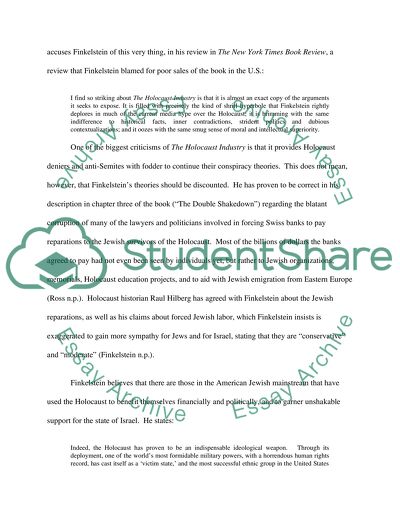Cite this document
(“Norman Finkelsteins The Holocaust Industry Term Paper”, n.d.)
Retrieved from https://studentshare.org/history/1421372-norman-finkelsteins-the-holocaust-industry
Retrieved from https://studentshare.org/history/1421372-norman-finkelsteins-the-holocaust-industry
(Norman Finkelsteins The Holocaust Industry Term Paper)
https://studentshare.org/history/1421372-norman-finkelsteins-the-holocaust-industry.
https://studentshare.org/history/1421372-norman-finkelsteins-the-holocaust-industry.
“Norman Finkelsteins The Holocaust Industry Term Paper”, n.d. https://studentshare.org/history/1421372-norman-finkelsteins-the-holocaust-industry.


